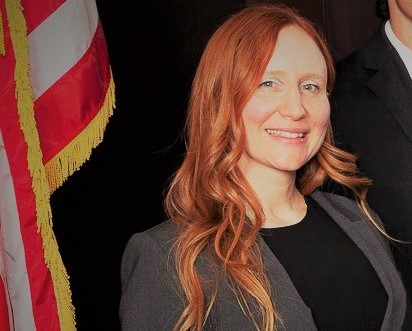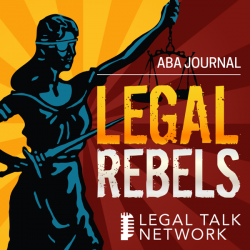Hope for nonprofit law firm model remains despite closing of Open Legal Services

Image from Shutterstock.com.
Open Legal Services certainly wasn’t the first nonprofit law firm offering low-cost legal help. But as co-founder Shantelle Argyle posits, it was probably “the loudest.”
By that, she means the Utah-based outfit she co-founded with A. Daniel Spencer in 2013 kept a high profile and frequently shared lessons learned with others who were taking a similar approach in hopes of addressing the access-to-justice gap. Argyle and Spencer also spoke at a variety of conferences and actively engaged with the media, garnering attention nationwide.
So when Open Legal Services ceased operating last year, the news sent a shudder through the nonprofit legal world and raised questions about whether the nonprofit model could work for other firms.
“The impact of our closing was pretty broad, and people were pretty devastated,” Argyle says.
However, she and others with experience in the nonprofit law firm realm say Open Legal Service’s closure shouldn’t bode poorly for those wanting to implement that type of model for providing legal assistance to low- and middle-income Americans. In fact, Argyle and Spencer say their former firm’s results during its brief tenure should encourage others.
The graduates of University of Utah’s S.J. Quinney School of Law launched Open Legal Services with the goal of serving consumers whose income was not low enough to qualify for free legal assistance but who also could not afford most lawyers.
They used a sliding scale that took into account a potential client’s income and family size when determining the hourly rate they would pay, which would be an amount below market rate.
Beyond paying less in taxes, the other benefits Open Legal Services secured by operating as a nonprofit included the ability to solicit donations and to receive referrals from courts and other nonprofits for work that for-profit firms would be ineligible to get. Additionally, the firm’s lawyers were eligible to apply for student loan relief through the Public Service Loan Forgiveness Program.
Open Legal Services primarily handled family law and criminal cases and, at its largest, had seven attorneys. The highest annual gross revenue figure it posted was approximately $475,000 in 2016, according to tax filings and Argyle.
During its five-plus years of operation, Open Legal served just shy of 3,000 people, according to Spencer. The two co-founders were also named Legal Rebels in 2015 by the ABA Journal.
“We feel like we had a very successful run of what we called ‘an experiment,’” says Argyle, who is now a deputy district attorney with the Salt Lake County district attorney’s office.
But she admits the firm faced several challenges, including employee retention. Local for-profit firms that offered higher salaries would hire away attorneys Open Legal had spent significant time training.
Absorbing the caseloads of those who left was difficult for an already very busy staff, Argyle says. Family considerations also played a role in the co-founders’ decision to shut down the firm.
“We dedicated our lives to this important mission we had, and eventually we decided it was time for us to do something different for various reasons,” says Spencer, who now serves as the managing attorney of for-profit Spencer Family Law in Salt Lake City.
For San Diego attorney Anthony M. Medina, Open Legal Services was the model he looked to when starting the nonprofit People’s Legal Services in 2018.
He would also reference the Utah firm when explaining the sliding-scale approach and highlighting nonprofit law success stories during informational presentations he gave at community organizations, so he was disappointed when he learned Open Legal was shutting down.
But Medina says, “Just because they shuttered it doesn’t mean they weren’t successful while running it.”
Additionally, his two-person firm, which is focused primarily on family law and expanding into immigration law, is determined not to let Open Legal’s closure slow its forward progress.
“Ultimately, I’m going to give it my best effort,” Medina says. “That’s been enough previously, and hopefully it is in this instance.”
Mitch, a University of Wisconsin law professor, agrees that Open Legal’s shuttering should not scare others away from opening a nonprofit law firm.
He says although the Utah firm was “a success story for the attention they got and the spreading of the word of how this can work,” some sliding-scale legal nonprofits in existence for much longer are still going strong.
One nonprofit firm in Wisconsin that has eclipsed the 15-year mark is Community Justice, Inc., which Mitch co-founded in 2004. The Madison-based legal services provider handles cases in a wide variety of practice areas, including housing, consumer fraud and family law.
Additionally, in a 2017 paper Mitch authored about sliding-scale law firms, the law professor says he identified more than 30 such firms.
“I don’t think that Open Legal ceasing practice is any sort of bellwether for the model,” Mitch says.
Robert F. Seibel, co-founder of the Consortium for Access to Justice, says he thinks the nonprofit law firm model will remain viable because of the huge demand for reasonably priced legal services. He notes that the dramatic economic impact of the COVID-19 pandemic has only increased the need for low-cost legal help.
Seibel also emphasizes that sliding-scale firms provide another career path for lawyers with a passion for public interest work.
“I think it is a perfect blend of doing good and making a decent living,” Seibel says. “That’s an attractive prospect for a lot of people who are going to law schools these days.”
Given their belief in the power of the sliding-scale approach, Spencer and Argyle are still speaking with and encouraging those leading nonprofit firms or eager to start one.
Argyle says this aligns with her philosophy that there shouldn’t be trade secrets when it comes to access to justice.
“We recommend people be brave and try something new,” she says.



